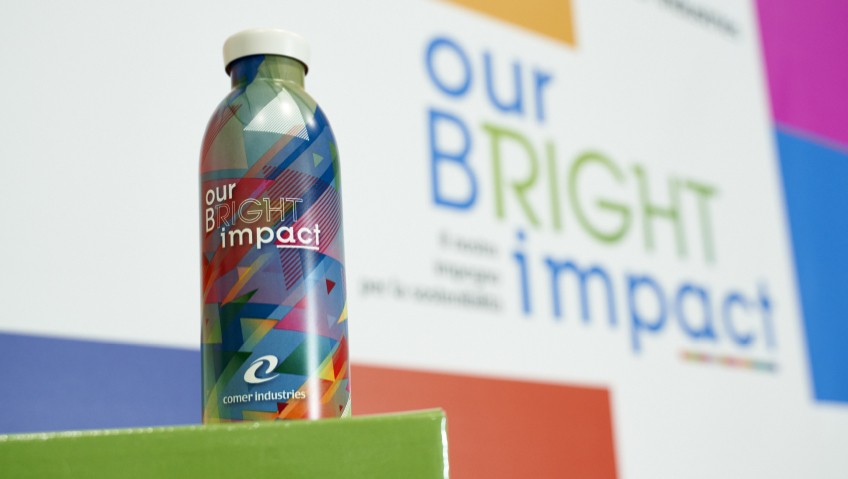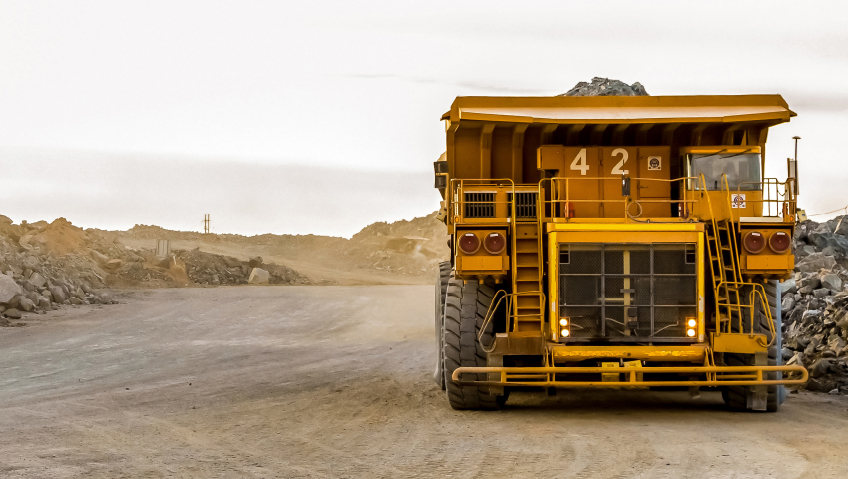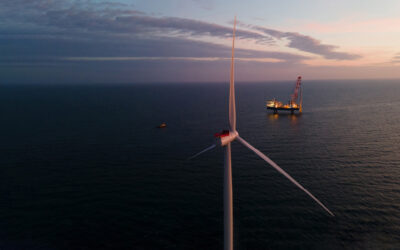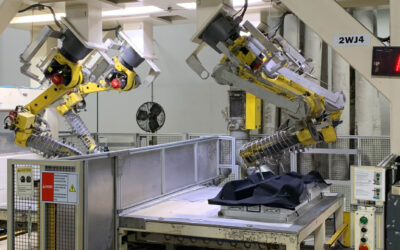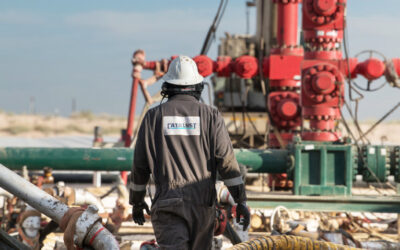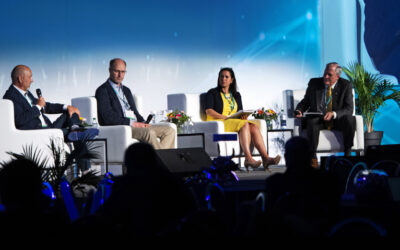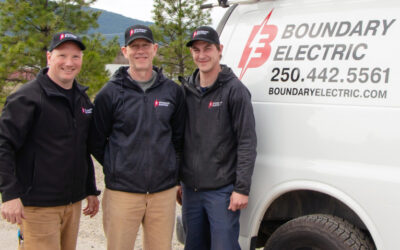In 2020, Comer Industries, Inc. will mark its fiftieth anniversary. It is a huge achievement, given the sometimes-volatile nature of the manufacturing sector, but the company has no intention of resting on its laurels. Instead, it plans to continue growing its market reach, product lineup, and client base of global original equipment manufacturers (OEMs). Among other initiatives, the company is looking to add a new level of technology to its existing products.
Headquartered in Reggiolo, Italy, Comer Industries designs and manufactures drive shafts, powertrains, planetary drives, gearboxes, and other equipment for industrial and agricultural machinery. The company’s products are used in wind turbines, mining, road construction and forestry machines on the industrial side, and tractors, soil tillage, and forage mixing machines on the agricultural side.
“We serve the agricultural and industrial sectors,” states Lane Boger, Sales Director for North America. The two sectors are currently fairly evenly split. “Traditionally, Comer was biased more heavily on the agricultural side.”
Through diversification, hard work, and a reputation for producing excellent products, Comer has become a global entity with operations in nearly a dozen countries. Manufacturing is performed in Italy, China, and India. The company’s American subsidiary, based in Charlotte, North Carolina, offers “engineering, warehousing, some design, customer service, accounting,” among other services, says Boger.
Given its international reach, Comer Industries is determined to maintain a consistent level of quality across all its branches. The firm follows comprehensive policies and procedures based on ISO 9001:2015 quality management criteria to uphold high standards in everything it does, from manufacturing to deliveries and sourcing. Quality control “is governed by the same criteria, whether it’s manufacturing in Italy or China,” notes Boger.
The company was founded in 1970 in Italy by the Storchi family, and the company name stands for Costruzioni Meccaniche Riduttori which is shortened to Co.me.r. At first, the company mainly focused on making mechanical transmissions for agricultural machines. During the 1980s, it expanded its sales presence in France, Germany, Great Britain, and the United States. In 1990, it introduced a product line for industrial clients, massively expanding the scope and scale of its operations.
Strong growth ensued, and the company continued to expand. After the turn of the millennium, Comer opened branches in Asia and South America. For all this growth, this is still a family-run business. “The children of the first generation are running it now. [Comer] is still family-owned but publicly-listed,” says Boger.
With the company preparing for its fiftieth anniversary, he says diversification has been central to ongoing success. “If the agricultural market is down, the industrial market can pick up for it. We have a diversification of strategic products out in the market, and in addition to that, we have super aggressive sourcing campaigns all over the world. We’ve got supply chains we’re pulling from in all countries and from all angles,” he states.
While maintaining close ties to many long-standing vendors, the firm is always on the lookout for new potential suppliers and lower prices. It is part a strategy to constantly improve operations and enhance product quality.
“Obviously, we have long-term partnerships and contractually obligated relationships with our supply base, but we’re always on the side of aggressive sourcing,” he says.
At present, the company has 1,328 employees around the world, a little over thirty of whom work in the United States. It takes a keen interest in workforce development and runs a staff training and management facility in Italy called the Comer Academy.
The academy represents “an opportunity for us to reinvest in employees as part of our own internal sustainability plan. You talk about sustainability from an environmental standpoint but there’s also the personnel standpoint – funneling resources back into strengthening personnel,” explains Boger.
The academy aims to sharpen the skills of staff members through training courses designed to enhance their product knowledge, sales methods, and leadership capabilities. This all fits within a corporate culture that emphasizes transparency and honesty as well as opportunity and excellence.
Comer’s concern for its workforce is also reflected by its comprehensive health, safety, and environmental management program which is run according to ISO 14001:2015 and ISO 45001:2015 standards. Risk management protocols are closely adhered to and regularly evaluated; workplaces are designed to be as hazard-free as possible, and employees are routinely consulted on health and safety matters.
“Our customer base, some of the largest OEMs in the world, keep coming in [to our plants] and are impressed by what they see. They know we’ve got the right processes in place. It doesn’t matter if it’s manufacturing or health or safety,” notes Boger.
Comer Industries has won a lengthy list of awards. These include the ‘Quality Supplier Award 2018’ from CNH Industrial which recognizes the high standard of its services and deliveries, among other things and AGCO ‘Partner of the Year’ 2018. Given that Comer is one of thousands of AGCO suppliers, the partner of the year award was a significant honor. In 2017, for the fifth consecutive year, it obtained ‘Supplier Quality Excellence Process Certification-Bronze Level,’ a standard set by manufacturer Caterpillar.
Comer Industries wants to expand into new markets and introduce new products. “I can’t spill the beans, but I will say we’re always keeping an eye on what the latest industry trends are for machines. We continually have to evolve our products. We know that integration of technology is probably the biggest next step for us – having what is a traditionally simple product or just gears and transmissions and integrating a level of technology into that, whether it’s electrification or sensors or monitoring,” he says.
“We have our pulse on what the industry needs as far as evolving our current product line. We have standard offerings that are out there,” he says. “But beyond that, obviously we’re open to evolving them and having the inherent flexibility to meet customer needs.”
Comer regularly participates in trade shows and industry events around the world. “We attend all the big industry events. You’ve got CONEXPO in the United States. You’ve got Agritechnica, a big agricultural show in Hanover, Germany. But there’s also industrial shows that we participate in, in all corners of the planet, whether it’s bauma in Shanghai or bauma in Munich,” Boger says. The bauma trade fair is the world’s largest showcase of equipment for the construction industry.
Scheduled for March 10 to 14, 2020 in Las Vegas, the CONEXPO-CON/AGG event is the largest trade show for the construction sector in North America. Attending and/or exhibiting at events such as CONEXPO-CON/AGG gives the company the opportunity to “show our innovations, show our products and have our technical sales support guys,” answer questions from potential customers, says Boger.
Huge OEMs such as John Deere and Caterpillar exhibit at such events as well. As he points out, these equipment manufacturers sometimes choose to spotlight machinery that contain Comer Industries gearboxes, powertrains, or drive shafts, which is a nice bonus.
Comer’s American subsidiary is actively involved in local charitable and community work. During holiday season, employees have the opportunity to donate their time by volunteering at food shelters, for example. The U.S. branch supports international disaster relief agency Samaritan’s Purse and Shop with a Cop, a charity in which a uniformed police officer shops and socializes for a day with underprivileged children, among other charities.
Right now, the biggest challenge facing the company is maintaining strong revenues in the face of economic uncertainty. “We’re tied directly to what the markets do. Our biggest challenge is always maintaining profitability despite downturns. Everybody can have a good time when markets are up and OEMs are selling tons and tons of machines but it’s [important to] maintain financial security or bottom-line security within the company during the downturns.”
While markets have been a bit unpredictable lately, Boger is optimistic. “We’re in the middle of what is a big agricultural downturn right now. We’re seeing a consolidation or a little bit of a market deceleration on the industrial side. Comer will close this year, despite down markets, at an all-time high. When those numbers are published, we’ll be above 2018 values.”
Indeed, in spite of any overall economic blips, he envisions growth, new markets, and new products. “We want to continue and maintain what are our current flagship businesses, big applications that we sell a lot of material into or have a high level of volume to. But we’ve also got our eye on some emerging markets or even the takeover of market share from our peers in a couple of strategic areas. For us, there will probably be some healthy growth for 2020 to 2021 but also the realization of some major projects and products we’ve got in development right now.”

